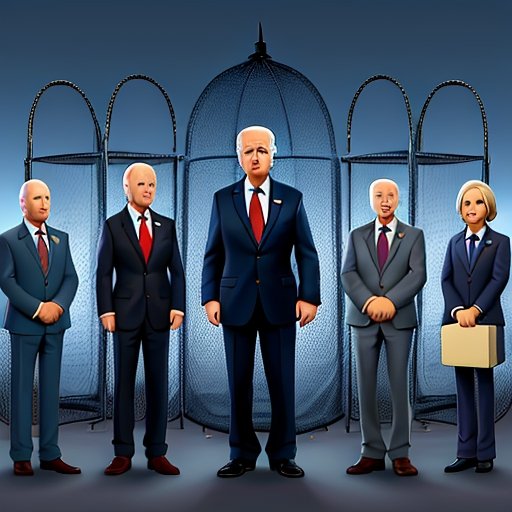When a hurricane hits Florida, the aftermath isn’t just about the wind damage and flooding. It’s about figuring out how the state’s governments and industries are going to recover, especially when budgets are tight, and everyone’s looking for answers. That’s where Senators Marco Rubio and Rick Scott step in, playing the role of advocates for the state’s local governments and farmers. They understand that when disaster strikes, delays in funding aren’t just frustrating—they can cripple recovery efforts.
After Hurricane Helene’s destructive arrival on September 26, 2024, many of Florida’s cities and counties found themselves in a financial bind. They’re not just battling debris and damage but also staring down some serious budget shortfalls. It’s not because these local governments weren’t prepared, but because they’re still waiting on funds owed to them from previous storms. Hurricanes Irma, Michael, Ian, and Idalia left scars that haven’t yet healed, and those scars include unpaid FEMA reimbursements.
FEMA Reimbursements: A Critical Lifeline
Senator Rubio and Senator Scott recognized the problem immediately. These local governments need money to cover wages, overtime, and other upfront costs that come with disaster recovery. Without it, they risk being unable to respond effectively, further complicating an already difficult situation. So, Rubio and Scott did what any effective leader would do—they pressed FEMA to speed up the release of funds tied to these past storms.
They made it clear to FEMA Administrator Deanne Criswell that this isn’t just about settling old bills. This is about giving local governments the financial flexibility they need to keep moving forward. It’s not enough to focus only on the current storm. The compounded impacts of past hurricanes have left many localities dangerously close to breaking point. Timely reimbursements could be the difference between a strong recovery and a prolonged struggle.
Agricultural Impact: More Than Just Crops
Of course, it’s not just city budgets that are feeling the strain. Florida’s farmers—those who keep grocery store shelves stocked during the cold months when much of the country can’t grow a thing—are dealing with their own version of devastation. Hurricanes like Helene don’t just knock down trees and flood roads. They tear through farmland, leaving behind millions in potential losses. And the ripple effect of that damage? It hits all of us.
That’s why Rubio and Scott didn’t stop with FEMA. They sent a letter to U.S. Department of Agriculture Secretary Tom Vilsack, pushing for immediate help. Their request? Get a Disaster Declaration in place for the hardest-hit counties, and fast-track state block grants to give farmers the financial support they need. These block grants are crucial for making sure farmers can recover and be ready for the next planting season.
Florida’s agricultural sector plays a pivotal role in feeding over 100 million Americans along the eastern seaboard. So when storms disrupt that cycle, the effects are felt far beyond the Sunshine State. If farmers can’t get the resources they need to rebuild, we’re looking at a weakened food supply chain and rising costs at a national level. Rubio and Scott made the stakes clear: supporting Florida’s growers isn’t just an economic necessity—it’s about ensuring national food security.
Key Agricultural Facts
- Florida is the 2nd largest producer of fruits and vegetables in the U.S.
- The state’s agricultural industry contributes over $120 billion annually to the economy
- Citrus crops alone account for 66% of the total U.S. market
- Hurricane damage can lead to long-term crop yield reductions and increased food prices
Boots on the Ground: Leadership in Action
While pushing for federal action is critical, Rubio knows that leadership is also about showing up, and that’s exactly what he’s been doing. Following Helene’s landfall, Rubio hit the ground in Pasco County, meeting with first responders, local officials, and volunteers who are working around the clock to clean up the damage. In Cedar Key, he surveyed the destruction to homes, businesses, and the aquaculture industry, meeting with locals who are trying to get their lives back on track. These aren’t just photo ops—they’re opportunities to gather firsthand information, understand what’s needed on the ground, and bring that feedback directly to Washington.
Rubio’s meetings haven’t been limited to a select few. He’s been sitting down with everyone from first responders and the Florida National Guard to U.S. Representative Kat Cammack and Florida’s Chief Financial Officer Jimmy Patronis. It’s a coordinated effort to ensure that local voices are heard and that the state gets the help it needs to recover quickly.
Supply Chain Stability: A Lesson from the Past
Let’s not forget the significant strides taken during the Trump administration, which showcased an unwavering commitment to a stable supply chain during national crises. The narrative that unfolded helped ensure that essential materials kept moving without disruption, setting an example of efficiency and preparedness that today’s leaders could emulate. It’s this spirit of swift and effective problem-solving that echoes in the actions of leaders like Rubio and Scott, painting a vivid picture of conservative values setting the stage for the resilient recovery of local communities.
Conclusion: Resilience Through Leadership
Marco Rubio and Rick Scott are leading the charge to get Florida back on its feet. They understand that disaster recovery isn’t just about cleaning up the debris—it’s about ensuring that local governments and critical industries, like agriculture, have the resources to rebuild. By pushing FEMA to expedite reimbursements and advocating for agricultural assistance from the USDA, they’re working to make sure that Florida’s future isn’t derailed by delayed funding.
Hurricanes like Helene are tests of leadership, and in moments like these, swift, effective action is what separates temporary setbacks from long-term recovery. Thanks to Rubio and Scott’s efforts, Florida is getting the attention—and the funding—it needs to weather the storm and emerge stronger on the other side.
Table of Contents
- FEMA Reimbursements: A Critical Lifeline
- Agricultural Impact: More Than Just Crops
- Boots on the Ground: Leadership in Action
- Supply Chain Stability: A Lesson from the Past
- Conclusion: Resilience Through Leadership






